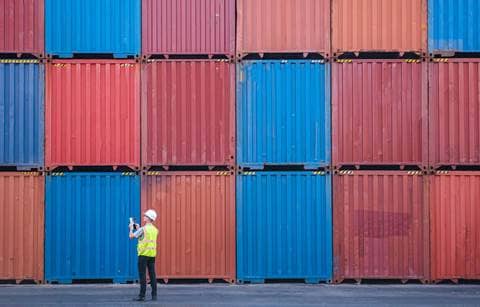We often give presentations for businesses on globalization concepts and international readiness. At the end of our talks, at least one business owner typically approaches us and says something like this: “I came in thinking there were a few things I didn’t fully understand, and now I realize it’s more like 30 things.”
To paraphrase Donald Rumsfeld, there are things we know that we know, things we know that we don’t know, but also things we don’t know we don’t know. It’s that last category that’s especially dangerous. If you operate overseas or are considering it, here are six areas you must know about.
Certificates of origin
Customer-oriented issues like certificate of origin can be problematic for many internationally active organizations. Very simply, businesses typically provide them incorrectly and often don’t understand the rules behind how origin is determined or the liability exposure they’re accepting.
Oftentimes, businesses sell an item to a customer that they’ve certified as U.S. content. The customer relies on that but, when he/she goes to export it, realizes that it’s actually content from a foreign country. This can result in significant duties and interest that are then passed down from the customer to the business.
Export licenses
Many organizations believe they can export anything out of the United States. This isn’t the case. The United States has a list of products and product categories (often technology or weapons related) that requires an export license. There are also certain markets to which you cannot export, like Iran; moreover, you cannot knowingly export to another country that plans to export to Iran. It’s important to be aware of these rules.
Importer of record
When it comes to exporting products, who is the importer of record? Phrased another away, who has the responsibility for duties, taxes, and the legal importation of products when they cross borders? Many clients don’t understand rules and, in some cases, lose money when they ship products to a foreign country only to find the amount they owe is greater than theprofit margin on the product.
Regional rationalization
Another item to be aware of is rationalization. It’s important to evaluate your customers and their current and future needs by geographic region, and plan accordingly.
For example, automotive companies are significantly decreasing the number of platforms they produce. Are you nimble enough to change your shipping strategy because your customer has commonized suppliers and products?
This kind of consolidation is also occurring in the medical device and aerospace industries. It’s important to consider these issues and develop a strategy. That doesn’t necessarily mean setting up a facility or a plant in every location, but you will need a viable solution to meet customer requirements in those markets (like a strategic alliance or joint venture). And it’s important to conduct this analysis regionally versus country-specific since you may be able to cover a broader footprint from one location over another and still be close enough to specific customers.
Internal controls
It’s been our experience that clients don’t focus on their foreign operations as much as they should. This often leads to lax internal controls and weak documentation.
If we walk into a client and ask for copies of their foreign subsidiaries’ last two years of tax returns and all relevant licenses, odds are, the client organization can’t provide them. They rely on the foreign subsidiary to keep records, which is a terrible practice. It’s fine to trust your CFO, but CEOs need to verify reporting guidelines and deadlines and monitor them closely to confirm compliance. It’s not sufficient to rely solely on the CFO or subsidiary controller. This is the equivalent of putting all of your eggs in one basket.
Are you ready?
To help businesses determine if they’re prepared to do business internationally — or to help internationally active businesses determine if there are better practices to apply — it’s a good idea to undergo a readiness assessment. This involves partnering with an outside expert to spend time at your location analyzing information and verifying documentation, eliciting additional information, walking transactions through a normal reporting cycle, and giving you verbal feedback. Deliverables can be as simple as a verbal report to something much more formal and documented with action items and built-in accountability. For more information, give us a call.





